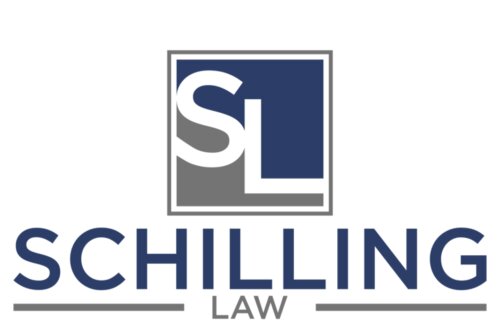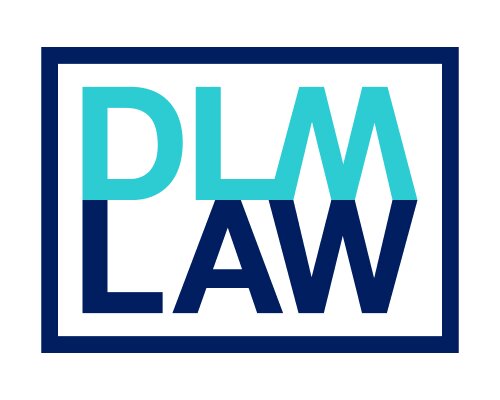Best Communications & Media Law Lawyers in Kansas
Share your needs with us, get contacted by law firms.
Free. Takes 2 min.
Or refine your search by selecting a city:
List of the best lawyers in Kansas, United States
About Communications & Media Law in Kansas, United States
Communications and Media Law governs the ways information is created, shared, published, or broadcast to the public. In Kansas, these laws regulate radio and television broadcasts, print and online journalism, advertising, telecommunications, and new media such as blogs and podcasts. Federal regulations set the groundwork, but Kansas also has state-level statutes and case law that affect how individuals and organizations communicate with the public. The aim is to protect freedom of speech while balancing concerns like privacy, defamation, and public safety.
Why You May Need a Lawyer
Individuals and organizations may need the help of a Communications and Media Law attorney in a range of situations. Common scenarios include being sued for libel or slander, facing accusations of copyright or trademark infringement, dealing with privacy violations, or encountering problems with regulatory compliance in broadcasting or telecommunications. Journalists may need legal advice regarding shield laws or accessing government records. Online content creators may run into legal questions about defamation, fair use, or content takedown notices. Consulting a lawyer is crucial whenever content or communication could result in legal exposure.
Local Laws Overview
In Kansas, several laws intersect with Communications and Media Law. Kansas follows the First Amendment of the U.S. Constitution, protecting freedom of speech and the press. The state recognizes defamation claims, including libel and slander, which allow individuals to sue if false statements damage their reputation. Kansas public records laws (Kansas Open Records Act) grant citizens access to government documents, with exceptions for privacy and security. Anti-SLAPP legislation, which protects against lawsuits intended to silence free speech, has limited application in Kansas. Kansas privacy laws can impact the publication of private information or recordings. Additionally, both state and federal regulators oversee telecommunications and broadcast operations within Kansas.
Frequently Asked Questions
What types of communications and media are regulated in Kansas?
Communications and Media Law covers print, radio, television, online publications, podcasts, blogs, social media, public communications, and telecommunications services. Both traditional and digital media have legal obligations under Kansas law.
Can I be sued for something I post online in Kansas?
Yes, you can face lawsuits for online statements if they are considered defamatory or violate privacy rights, copyright, or trademark laws. Kansas law treats online content similar to print content for the purposes of defamation and other claims.
What is defamation, and how is it handled in Kansas?
Defamation is a false statement communicated to others that injures someone's reputation. In Kansas, defamation includes both libel (written) and slander (spoken). Truth is usually a defense, and public figures face a higher burden to prove defamation.
Do I need permission to use someone else’s work on my website or publication?
Generally, yes. Using copyrighted material without permission may violate copyright law, unless your use qualifies as fair use, which depends on factors like purpose, nature, amount used, and effect on the market.
What is the Kansas Open Records Act?
The Kansas Open Records Act gives the public access to most records maintained by government agencies in the state. Some exemptions protect privacy, security, or sensitive law enforcement information.
Are there special considerations for journalists in Kansas?
Journalists in Kansas often rely on shield laws and public records laws. Kansas does not have a broad journalist shield law, but federal and state laws may provide some protections for confidential sources in specific circumstances.
What privacy rights do individuals have under Kansas law?
Individuals in Kansas are protected by laws that prohibit the unauthorized publication of private information, intrusion of solitude, and unauthorized recordings. These laws may apply in news gathering, entertainment, or advertising contexts.
How is advertising regulated in Kansas?
Advertising must comply with state and federal truth-in-advertising laws. False, deceptive, or misleading advertising can result in civil penalties or lawsuits from consumers or competitors.
Who regulates broadcasting and telecommunications in Kansas?
Broadcasting and telecommunications are regulated by the Federal Communications Commission (FCC) and the Kansas Corporation Commission. These bodies enforce rules about licensing, content standards, and consumer protection.
How can I respond if I receive a cease and desist or takedown notice?
If you receive a legal notice related to content or communications, it is important to consult a Communications and Media Law attorney before responding. An attorney can help assess the validity of the claim and protect your rights.
Additional Resources
- Kansas Bar Association: Offers resources and a lawyer referral service. - Kansas Judicial Branch: Provides information on court procedures and public access laws. - Kansas Attorney General’s Office: Enforces consumer protection and privacy laws. - Kansas Corporation Commission: Oversees telecommunications regulations at the state level. - Federal Communications Commission (FCC): Regulates national broadcasting and telecommunications. - Society of Professional Journalists - Kansas Chapter: Supports journalists and educates about First Amendment rights and legal resources.
Next Steps
If you believe you need legal assistance in the field of Communications and Media Law in Kansas, start by documenting any relevant facts and communications concerning your situation. Gather copies of all related documents, online posts, emails, or legal notices. Consider contacting a lawyer who specializes in Communications and Media Law or reach out to the Kansas Bar Association for a referral. Acting promptly can help protect your rights and avoid unintended legal consequences. If you are unsure whether your issue falls under Communications and Media Law, a lawyer can help you determine the best course of action for your specific circumstances.
Lawzana helps you find the best lawyers and law firms in Kansas through a curated and pre-screened list of qualified legal professionals. Our platform offers rankings and detailed profiles of attorneys and law firms, allowing you to compare based on practice areas, including Communications & Media Law, experience, and client feedback.
Each profile includes a description of the firm's areas of practice, client reviews, team members and partners, year of establishment, spoken languages, office locations, contact information, social media presence, and any published articles or resources. Most firms on our platform speak English and are experienced in both local and international legal matters.
Get a quote from top-rated law firms in Kansas, United States — quickly, securely, and without unnecessary hassle.
Disclaimer:
The information provided on this page is for general informational purposes only and does not constitute legal advice. While we strive to ensure the accuracy and relevance of the content, legal information may change over time, and interpretations of the law can vary. You should always consult with a qualified legal professional for advice specific to your situation.
We disclaim all liability for actions taken or not taken based on the content of this page. If you believe any information is incorrect or outdated, please contact us, and we will review and update it where appropriate.
Browse communications & media law law firms by city in Kansas
Refine your search by selecting a city.









